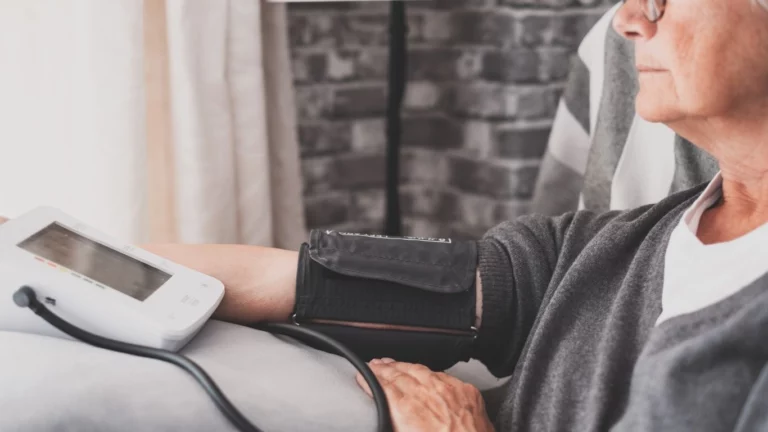GERD vs IBS Symptom Comparison: Understanding the Differences
Gastroesophageal Reflux Disease (GERD) and Irritable Bowel Syndrome (IBS) are both common digestive conditions, but they have distinct symptoms and causes. If you’re confused about the differences between the two, you’re not alone! Let’s dive into how GERD and IBS compare in terms of their symptoms, triggers, and treatments.
If you’ve ever experienced digestive issues, you may have heard of GERD and IBS. While both conditions affect the gastrointestinal system, they have different causes, symptoms, and treatments. In this article, we’ll compare GERD and IBS, helping you understand their unique characteristics and how to manage them effectively.
What is GERD?
 GERD, or Gastroesophageal Reflux Disease, occurs when stomach acid flows back into the esophagus. This reflux leads to uncomfortable symptoms like heartburn, regurgitation, and chest pain. GERD can happen after eating or when lying down and is caused by a weakened lower esophageal sphincter (LES), which allows acid to flow back up. Some common GERD symptoms include:
GERD, or Gastroesophageal Reflux Disease, occurs when stomach acid flows back into the esophagus. This reflux leads to uncomfortable symptoms like heartburn, regurgitation, and chest pain. GERD can happen after eating or when lying down and is caused by a weakened lower esophageal sphincter (LES), which allows acid to flow back up. Some common GERD symptoms include:
- Heartburn – A burning sensation in the chest or throat, usually after eating or lying down.
- Regurgitation – A sour or bitter taste in the mouth caused by stomach acid rising up the esophagus.
- Chest pain – Often mistaken for heart pain, this discomfort occurs behind the breastbone.
- Difficulty swallowing – A feeling that food is stuck in the chest or throat.
What is IBS?
 Irritable Bowel Syndrome (IBS) is a chronic gastrointestinal disorder that affects the large intestine. It can cause a variety of symptoms related to bowel movements, including diarrhea, constipation, and abdominal discomfort. The exact cause of IBS isn’t well understood, but stress, diet, and gut bacteria imbalances are often factors that trigger or worsen symptoms. Some common IBS symptoms include:
Irritable Bowel Syndrome (IBS) is a chronic gastrointestinal disorder that affects the large intestine. It can cause a variety of symptoms related to bowel movements, including diarrhea, constipation, and abdominal discomfort. The exact cause of IBS isn’t well understood, but stress, diet, and gut bacteria imbalances are often factors that trigger or worsen symptoms. Some common IBS symptoms include:
- Abdominal pain or cramping – Often relieved by bowel movements.
- Changes in bowel movements – This can include diarrhea, constipation, or alternating between the two.
- Bloating – A feeling of fullness or swelling in the abdomen.
- Gas – Excessive burping or flatulence.
How GERD and IBS Symptoms Compare
At first glance, GERD and IBS might seem similar because both involve the digestive system. However, they affect different parts of the system and have distinct symptoms. Let’s break it down:
1. Location of Symptoms
- GERD affects the upper digestive system, particularly the esophagus, causing symptoms like heartburn and regurgitation.
- IBS, on the other hand, affects the lower digestive system (the colon and intestines), leading to changes in bowel movements and abdominal discomfort.
2. Types of Pain
- GERD typically causes burning chest pain due to acid reflux.
- IBS causes cramping and pain in the abdomen, often linked to bowel movement patterns (e.g., diarrhea or constipation).
3. Triggers
- GERD triggers are usually food-based, such as spicy, fatty, or acidic foods, as well as alcohol, caffeine, and large meals.
- IBS can be triggered by a variety of factors, including certain foods (dairy, high-fat foods, or artificial sweeteners), stress, and hormonal changes.
4. Relief from Symptoms
- GERD symptoms are often relieved by antacids or proton pump inhibitors (PPIs), which reduce stomach acid.
- IBS relief may come from dietary changes, medications to manage symptoms (like anti-diarrheal or laxatives), or stress-reducing techniques.
5. Long-Term Impact
- GERD can lead to more serious complications, like esophageal damage or even cancer if left untreated.
- IBS doesn’t cause lasting damage to the intestines, but it can significantly impact a person’s quality of life due to chronic symptoms.
Diagnosis: GERD vs IBS
If you’re experiencing digestive issues, it’s essential to get an accurate diagnosis from a healthcare provider. Here’s what you can expect when being tested for GERD or IBS:
GERD Diagnosis
- Physical exam – Your doctor will check for signs of acid reflux.
- Endoscopy – A tube with a camera is inserted into your esophagus to look for damage from acid reflux.
- pH monitoring – Measures the acidity level in your esophagus to see if acid reflux is occurring.
IBS Diagnosis
- Physical exam – Your doctor will check for signs of IBS-related discomfort.
- Stool tests – These tests help rule out infections or other digestive issues.
- Colonoscopy or sigmoidoscopy – A procedure that checks for any abnormalities in your colon.
Managing GERD and IBS
Both GERD and IBS require careful management to alleviate symptoms and improve quality of life. Here are some strategies for both conditions:
Managing GERD
- Diet changes – Avoid trigger foods, eat smaller meals, and don’t lie down immediately after eating.
- Medications – Antacids, H2 blockers, or PPIs can help reduce stomach acid and manage symptoms.
- Lifestyle changes – Maintaining a healthy weight, elevating your head while sleeping, and quitting smoking can all help manage GERD.
Managing IBS
- Dietary adjustments – The low FODMAP diet is often recommended for IBS sufferers to reduce bloating and discomfort.
- Fiber supplements – These can help with constipation and regulate bowel movements.
- Stress management – Since stress can trigger IBS, practicing relaxation techniques such as yoga or meditation can be beneficial.
Conclusion: GERD vs IBS
While GERD and IBS share some overlapping symptoms, they are distinct conditions that require different treatment approaches. GERD primarily affects the upper digestive tract and is characterized by acid reflux, while IBS impacts the lower intestines and causes changes in bowel movements. If you’re dealing with digestive symptoms, it’s crucial to consult a healthcare professional to get a proper diagnosis and treatment plan tailored to your specific condition. 
Appendices
FAQs
- Can GERD and IBS occur together? Yes, it’s possible to have both GERD and IBS at the same time. This is known as comorbidity and may complicate the symptoms of both conditions.
- Are there any dietary changes that can help with both GERD and IBS? A diet low in acidic foods and high in fiber may help manage both conditions

Camellia Wulansari is a dedicated health writer specializing in digestive disorders, contributing valuable insights and information to the health and wellness community. With a passion for promoting well-being through knowledge, Camellia serves as a reliable source of expert content on healthusias.com.















